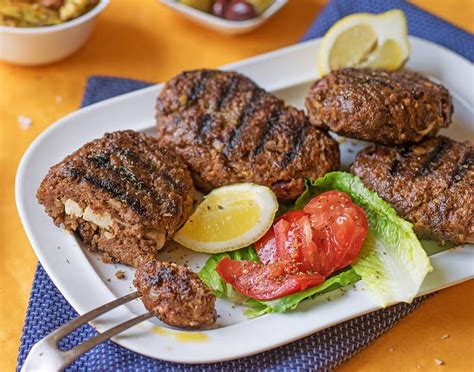When it comes to experiencing coastal cuisine in Greece, there is a world of flavors waiting to be explored. From the traditional ingredients and flavors that have been passed down through generations to the exquisite seafood delicacies that can be found in the Mediterranean Sea, Greek coastal cuisine offers a unique and tantalizing culinary experience. In this blog post, we will delve into the rich culinary traditions of Greece, focusing on the special ingredients and flavors that are a hallmark of coastal cooking. From the varied specialties found on the Greek islands to the vibrant citrus fruits harvested from coastal orchards, and the unique herbs and spices that add depth and complexity to Greek dishes, there is so much to discover and savor. Join us on a journey as we uncover the diverse and delectable flavors of coastal cuisine in Greece.
Traditional Greek Ingredients and Flavors
Greek cuisine is renowned for its rich flavors and the use of traditional ingredients that have been passed down through generations. One of the key components of Greek cooking is the use of olive oil, which is considered the liquid gold of the country. The flavor and aroma of olive oil adds a unique depth to many Greek dishes, from salads to main courses.
Another essential ingredient in Greek cuisine is feta cheese, which is made from sheep’s milk and has a tangy, salty flavor. Feta cheese is used in a variety of Greek dishes, from traditional salads to creamy dips and savory pastries.
When it comes to flavors, Greek cuisine also makes use of aromatic herbs such as oregano, thyme, and mint, which are commonly found in the Mediterranean region. These herbs add a fresh and earthy flavor to Greek dishes, enhancing the overall taste experience.
Lastly, fresh vegetables such as tomatoes, cucumbers, and bell peppers are staple ingredients in Greek cooking, providing vibrant flavors and a burst of color to each dish. Whether used in salads, soups, or stews, these vegetables are integral to the Greek culinary tradition.
Mediterranean Seafood Delicacies
Mediterranean cuisine is renowned for its delicious seafood delicacies, offering a wide variety of dishes that showcase the flavors of the sea. From fresh fish to succulent shellfish, the coastal regions of the Mediterranean are a haven for seafood lovers. The abundance of the Mediterranean Sea and the diverse marine life that inhabits its waters provide an array of options for creating delectable dishes
One of the most famous Mediterranean seafood delicacies is grilled fish marinated in olive oil, lemon, and herbs. The simple yet flavorful marinade enhances the natural taste of the fish, making for a delightful dining experience. Another popular dish is paella, a Spanish seafood stew that combines rice, shrimp, mussels, and other shellfish with a variety of spices and flavorful broth.
Aside from the savory main dishes, Mediterranean cuisine also includes an assortment of appetizers and salads featuring seafood. Calamari, octopus, and anchovies are often used in antipasti dishes, adding a unique and savory element to the meal. Greek salads are often topped with feta cheese and grilled shrimp for a refreshing and satisfying option.
Overall, the Mediterranean Sea offers a wealth of culinary delights for seafood enthusiasts. Whether enjoying a simple grilled fish by the shore or savoring a rich seafood stew at a renowned restaurant, the flavors of the sea are always a highlight of Mediterranean cuisine. With its emphasis on fresh, locally sourced ingredients and traditional cooking techniques, Mediterranean seafood delicacies continue to enchant and inspire food lovers around the world.
Greek Island Specialties
When visiting the picturesque Greek islands, it’s impossible not to be captivated by the unique culinary specialties that each island offers. From the vibrant flavors of Santorini to the rich seafood dishes of Crete, Greek island cuisine is a celebration of fresh, local ingredients and time-honored recipes passed down through generations.
One of the defining characteristics of Greek island specialties is the use of fresh, locally sourced seafood. Whether it’s grilled octopus in Mykonos or lobster pasta in Rhodes, the islands are a seafood lover’s paradise. The proximity to the Mediterranean sea provides an abundance of fresh fish and shellfish, which is expertly prepared using traditional cooking methods.
Another highlight of Greek island cuisine is the emphasis on seasonal fruits and vegetables. From juicy tomatoes and crisp cucumbers to sweet grapes and tangy olives, the islands are a treasure trove of fresh produce. The fertile soil and sunny climate contribute to the exceptional quality and flavor of these ingredients, which are showcased in a variety of salads, stews, and side dishes.
Finally, no exploration of Greek island specialties would be complete without local cheeses and dairy products. From the creamy feta of Naxos to the tangy graviera of Crete, each island has its own artisanal cheeses that add a rich, savory element to the cuisine. Whether enjoyed on its own or incorporated into savory pastries and pies, Greek island cheeses are a testament to the skill and tradition of local cheese-making.
Savoring Fresh Citrus Fruits from Coastal Orchards
When it comes to the coastal regions of Greece, one cannot ignore the abundance of fresh citrus fruits that thrive in the Mediterranean climate. From lemons and oranges to grapefruits and tangerines, the coastal orchards are teeming with a variety of citrus fruits that add a burst of flavor to Greek coastal cooking.
The citrus fruits grown in these orchards are not only used in sweet dishes and refreshing beverages, but also play a key role in savory recipes, balancing out flavors and adding a zesty twist to seafood and vegetable-based dishes.
One cannot help but savor the tartness of freshly squeezed lemon juice drizzled over grilled fish or the sweetness of orange segments tossed in a flavorful salad. The use of citrus fruits in coastal cooking truly elevates the culinary experience and showcases the natural abundance of the region.
Whether it’s a simple citrus-infused marinade for seafood or a refreshing citrus salad dressing, the coastal orchards of Greece offer a bounty of fresh flavors that are not to be missed.
Discovering Unique Herbs and Spices in Greek Coastal Cooking
When it comes to Greek coastal cooking, one of the most distinct and alluring aspects is the use of unique herbs and spices that are indigenous to the region. These flavorful elements play a crucial role in defining the taste and aroma of traditional Greek dishes, making them truly special.
From the fragrant oregano that grows abundantly on the sun-drenched hillsides to the pungent garlic that adds depth to seafood soups and stews, the herbs and spices of the Greek coastal region are a treasure trove of culinary delights waiting to be explored.
Whether it’s the aromatic notes of fresh mint in a refreshing Greek salad or the earthy warmth of cinnamon in a hearty moussaka, each herb and spice used in Greek coastal cooking brings its own unique signature to the table. They are the secret ingredients that elevate the simplest of dishes to extraordinary heights.
Some other noteworthy herbs and spices that are integral to Greek coastal cooking include thyme, basil, bay leaves, and cloves, all of which contribute to the rich tapestry of flavors that characterize the cuisine of this region. It’s a culinary journey that celebrates the natural bounty of the land and sea, where every dish tells a story steeped in tradition and authenticity.
Frequently Asked Questions
What are some traditional Greek ingredients and flavors?
Traditional Greek ingredients and flavors include olive oil, feta cheese, olives, honey, yogurt, and fresh herbs such as oregano and mint. These ingredients are commonly used in Greek coastal cuisine.
What are some Mediterranean seafood delicacies found in Greek coastal cuisine?
Mediterranean seafood delicacies in Greek coastal cuisine include grilled octopus, fried calamari, shrimp saganaki, and seafood risottos. These dishes showcase the fresh and diverse seafood offerings of the Mediterranean Sea.
What are some Greek island specialties to explore in coastal cuisine?
Greek island specialties in coastal cuisine include Santorini tomato fritters, Mykonos kopanisti cheese, Crete dakos salad, and Rhodes honey pastries. These dishes highlight the culinary diversity of the Greek islands.
How are fresh citrus fruits from coastal orchards enjoyed in Greek cuisine?
Fresh citrus fruits from coastal orchards are often enjoyed in Greek cuisine through citrus-infused seafood marinades, citrus-flavored desserts such as lemon cakes and orange phyllo pies, and refreshing citrus-based drinks like lemonade and orange juice.
What unique herbs and spices are used in Greek coastal cooking?
Unique herbs and spices used in Greek coastal cooking include Greek mountain tea, wild oregano, mastiha resin, and fennel pollen. These ingredients add distinct flavors and aromas to coastal dishes.
How does Greek coastal cuisine showcase the flavors of the Mediterranean?
Greek coastal cuisine showcases the flavors of the Mediterranean through its emphasis on fresh seafood, olive oil, citrus fruits, and aromatic herbs and spices. These elements reflect the bountiful offerings of the Mediterranean region.
What are some must-try dishes to experience the flavors of Greek coastal cuisine?
Must-try dishes to experience the flavors of Greek coastal cuisine include grilled whole fish with olive oil and lemon, stuffed grape leaves with rice and herbs, seafood orzo with cherry tomatoes, and baklava with walnuts and honey. These dishes capture the essence of Greek coastal cooking.






